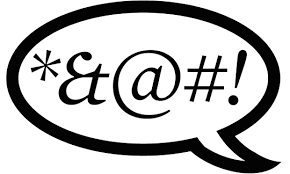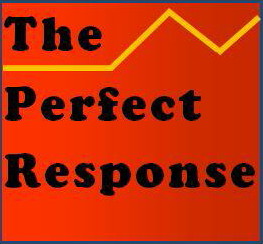It turns out that we are all poets of the dark side: we can muster an entire string of devil terms to deflate a person, without ever resorting to a dictionary or thesaurus.
We all know the childhood aphorism that “sticks and stones may break my bones but words will never hurt me.” It sells itself as a shield against verbal assaults that kids must sometimes endure. And now, it seems, we can include presidential candidates as well. But it’s so wrong. The language of personal attack can be devastating. We are selling language short if we dismiss its power to inflict psychic pain.
Perhaps a third of the ordinary language we use every day includes nouns, verbs and adjectives that can be chosen to praise or blame. I think of myself as a “scholar” and an “educator.” But perhaps to some of my students I’m a “windbag” or a “pedant.” The first two words are of the type known as”God terms,” expressions that not only name, but also judge positively. The second two are “devil terms,” renaming and judging downward. Naming upward with God terms naturally binds us together and suggests a certain amount of empathy. Though we sometimes do it for the wrong reasons, praise is often a small act of grace, as when we describe someone we work with everyday as a “smart” and a “major asset” to the organization.
But it turns out that we are all poets of the dark side: we can muster an entire string of devil terms to deflate a person or their actions without ever resorting to a dictionary or thesaurus. In recent years I’ve witnessed a grandmother thoughtlessly calling her daughter a “bad” mother for seeking a medical solution that would improve a grandchild’s hearing. We’ve also seen a presidential candidate calling a competitor “weak” and “low energy:” a news anchor calling their opposite at a competing network “savage” and “vindictive.” We are supremely equipped to throw the weight of our judgment around with the abandon of a professional wrestler.
This pattern which has always been a part of private communication has increasingly bled into our public life. A New York Times listing of public insults from Donald Trump includes a lot of language about other individuals not typically heard in the remarks of a presidential aspirant: “Hypocrite” (Bill Clinton), “dumb as a rock” (Glenn Beck), “a total embarrassment” (Jeb Bush), “totally incompetent” (Hillary Clinton), “a crude dope” (former Philadelphia Mayor Michael Nutter), “very stupid” (the current administration), and so on.1 To be sure, the wounded are often quick to respond in kind. And so, as the popular phrase goes, “our rhetoric escalates” or, more accurately, devolves.
Some individuals function so commonly in this mode that it seems apparent that this kind of rhetoric originates from some unmet needs: perhaps a defensive urge to strike first in order to ward off comments about one’s own vulnerabilities. A rapid barrage of judgments seems to represent a line in the sand, a warning of a person’s willingness to strike back. This is obviously the realm of the bully whose vulnerabilities are hidden behind the identity of a rhetorical pugilist. Not only does this political season feature some of these folks as potential political and moral leaders, but most of us have had to learn to cope with this kind verbal aggression in other parts of our lives. And then there are the genuine human horrors portrayed in film saga’s like David Mamet’s Glengarry, Glen Ross (1992) or Armando Iannucci’s In the Loop (2009). As in life, some of the characters’ taste for toxic put-downs turns out to be surprisingly moralizing, helping us learn to cherish relations that show more civility.
The hectoring and intimidation of sharp verbal rebukes is often its own reward for the impaired person who depends on them. In addition, an observation that marks another as a “fool,” or “worthless” offers a shooting gallery that can draw audiences to witness the guilty pleasures of a rhetorical take-down. In the age of the troll these diatribes are issued with the relentless frequency of machine guns emptying out their lethal contents. When writers talk about the “coarser culture” than the one their parents knew, this kind of vituperative rhetoric is often what they mean.
The problem readily suggests its own solution: It is sometimes better so say nothing than to toss out a harsh judgment about another that will hurt more than help. It’s also good to remember that such language is often seen as self-reflexive; many understand it as better describing the source rather than the target.
_____________
1Jasmine Lee and Kevin Quealy, “People, Places and Things Insulted by Donald Trump,” New York Times, January 31, 2016, Week in Review, p. 4.
Comments: woodward@tcnj.edu

